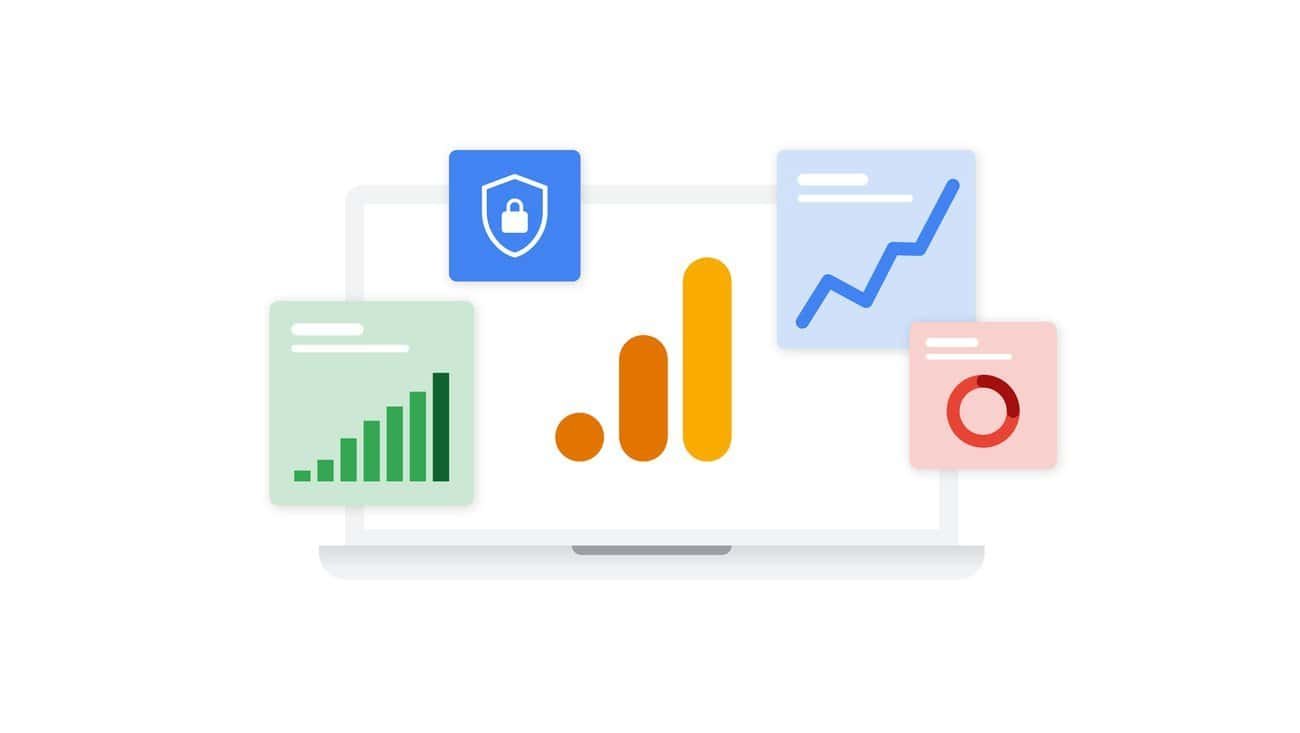Hey man! In this post, we’ll dive deep into the cutting-edge strategies that will make or break your rankings in 2025. Get ready to discover the secrets that the top SEO experts are using, and learn how to implement them yourself.
The Brand is King: Why Your Brand is the Secret Weapon You’re Ignoring
Google’s Shocking Shift: Why Brand Searches are Now the Key to SEO Success
Forget everything you thought you knew about SEO. The game has changed. Google is no longer just looking at your backlinks and keywords. They’re now laser-focused on branded searches. What does that mean for you? If people aren’t actively searching for your brand, your SEO efforts might be dead on arrival.
The days of ranking with a high domain authority website and generic content are over. Google is prioritizing brands that have real, authentic engagement, because it’s much harder to fake. It’s all about trust. If Google doesn’t see people searching for your brand, they don’t see a reason to rank you over someone they see as more reputable.
The Brand Authority Metric: Are You Winning the Game?
You may be wondering how to measure your brand’s impact on your SEO. Tom Kapper at Moz has developed a brand authority metric that looks at the ratio between branded searches and your backlink profile. If your backlink profile is strong but you have no branded searches, you’re in trouble. Brand searches are more important than ever. If you don’t have those branded searches, it will be much more difficult for you to compete.

How to Build Your Brand (Without Shady Tricks): Legit Ways to Skyrocket Branded Searches
So, how can you boost your brand presence without resorting to black-hat tactics? Here are a few strategies:
- Post job ads: Even if you’re not actively hiring, job ads can expose your brand to thousands of eyeballs, leading to people searching for you. You don’t even have to include your website URL in the ad, as people will still Google you.
- Create content: Produce podcasts, videos, and blog posts, making sure you mention your brand often. When people listen, watch, or read, they will often search for your brand.
- Be Consistent: Maintain a consistent brand presence across all channels. This helps create a coherent brand environment and get your name out there.
- Make it a routine: Encourage your team to Google your brand on different devices and in different locations. This may seem like a small thing, but can add to your branded search numbers.
- Be Patient: In the early stages of growth, focus on increasing the rate of growth of branded traffic. This will help your content strategy take off.
Content Production in 2025: Are You Creating Content That Actually Matters?
Content Commoditization: Why Your Generic Content is Useless
We’re in an age of content commoditization. Getting a page up about a specific topic is easier than ever. This means that simply having content on a topic isn’t enough. Google is looking for high-quality, unique, and expert-driven content.
How to Win the Content Game: Double Down on What Google Loves
So, how do you ensure your content stands out from the crowd? Here’s how:
- Analyze your Search Console: Look at your Google Search Console data to see what content Google already loves. If Google is consistently favoring your content on a particular topic, double down and create more content in that area.
- Prioritize Your Strengths: It’s tempting to focus on areas where you’re lagging, but that’s a mistake. Focus on your strengths and double down on the topics where you’re already seeing success. If you have three services, and one is getting good traction, focus on that area.
- Don’t Be Afraid to Be Counter-Intuitive: Sometimes the best SEO strategy goes against the rest of the company’s priorities.. Don’t be afraid to push for the areas that will bring the most success even if they are not the highest priority for the company.
The Shocking Truth About Content Quality: It’s Not About Quantity
In 2025, Google will be prioritizing content that is not just good but also credible and unique. Here’s what that means for you:
- Expertise Matters: Content from subject matter experts will be favored over generic content written by freelancers.
- Unique Insights: Provide unique angles, statistics, knowledge, and processes. This is how you stand out and Google will reward you for it.
- Authenticity: When you have a message you want to share, use multiple platforms. Share it on YouTube, social media, LinkedIn, podcasts, videos and in text. This creates a coherent environment that speaks the same language.
- Effort is Key: Google wants to reward content that requires real effort. This means going beyond basic keyword research.
How to Legitimize Your Content (Even if You’re Not an Expert):
Not everyone is an expert, but you can still create credible content. Here’s how:
- Gather data: Collect data from clients. Get them to fill out surveys, analyze sales call transcripts with AI to extract those insights, and put that into the articles.
- Emphasize Style: Present information in an engaging way. Even if the information itself is not unique, a unique style can create an enjoyable experience for the user.
- Let Your Data Speak: Track your Google Search Console data to see what content is being rewarded. Use this data to make informed decisions about your content strategy.
- Use AI Wisely: Use tools like ChatGPT to help analyze data and get quick answers. Remember to check those results for accuracy.
The Consensus Score: Google’s Secret Weapon for Identifying the Truth
Google’s Pursuit of Truth: Why Fact-Checking Matters More Than Ever
Google is on a mission to be the purveyor of truth. In the age of AI-generated content and misinformation, fact-checking is essential. Google is using a “consensus score” to verify the accuracy of information in your content.
What is the Consensus Score and How Does it Work?
The consensus score is a metric Google uses to ensure your information is trustworthy. It verifies that the facts in your content match the broader consensus of what Google considers the truth. Google does this by checking your facts against authoritative websites. This is done on a passage level. If the facts in your content don’t match the consensus, Google won’t trust it.
How to Optimize for the Consensus Score:
So, how can you optimize your content for this new metric? Here’s what you need to do:
- Use a GPT Bot: Use tools that extract all the claims and facts in your content, and verify those claims against the accepted academic consensus.
- Check Your Facts: Ensure all the facts in your article are accurate and trustworthy. Verify claims and cite reputable sources.
- Focus on Expertise: By citing experts and linking to authoritative websites, you will improve the factual authority of your content.
Topical Authority: It’s More Than Just Keywords
Topical Authority is a measure of how many angles you cover within a topic and whether they are covered correctly. In other words, it’s not enough to simply have content on a topic. You need to cover the topic completely and accurately. The consensus score is a big part of topical authority.
- Expand on Strong Areas: Once you know what areas you are strong in, try to find anything else within that area.
- Enrich Existing Pages: Look at your existing pages to see if there are any aspects you may have missed.
- Context is Key: Make sure to use relevant internal links that enhance the user experience and create a beneficial information journey on your website.

Internal Linking: More Than Just Semantics
User Journey is Crucial:
It’s important to realize that internal linking is more than just semantics. It’s also about the user journey and the information flow. Link to pages that are relevant to the user at the moment that they need them, not just the most semantically similar. Don’t just link for the crawlers, link for the users. Sometimes the link that might seem unrelated semantically may be a very natural and helpful link for the user.
How to Connect with Your Audience Through Internal Links:
- Frame Content in Context: Ensure that the topic is framed in the context of your website.
- Think About the User: Guide your user down the path that will take them to the information they need. Make it a smooth journey.
- Don’t Overlook User Flow: Don’t only link for semantics, link for the user flow.
B2B Content: How to Cater to Your Buyer Personas Without Losing SEO Rankings
The B2B Buyer: Are You Speaking Their Language?
When creating content for B2B, you need to consider your buyer personas. Here’s how you can do this without hurting your SEO:
- Identify How Your Buyer Personas Identify Themselves: If your buyer persona actively identifies themselves in the search, then it makes sense to target them.
- Create Targeted Content: You don’t have to speak only to one buyer persona on the main money page. Touch on their interest, and then link to a more targeted page that is just for them.
- Broad Appeal: Make your main money page appealing to a broad audience, then link to a specific persona page in a specific section.
- Use Search Console Data: Look at the search console data and see how people are identifying themselves. You may be surprised to find some unexpected keywords that have many impressions.
Launching a New Website: Content Velocity & The Avalanche Strategy
The Shocking Reality About New Websites:
When launching a new website, you have one chance to show Google what you’re all about. Here’s what you need to know:
- Don’t Hold Back: Publish as much content as you can at the beginning. Make a splash and get indexed.
- Be Reasonable: After the initial launch, make sure to publish content at a reasonable pace. Don’t create a fake momentum that you can’t sustain.
- The Avalanche Strategy: Use the Avalanche strategy and focus on keywords that are winnable for you. Collect all possible keywords and isolate the ones that have low domain authority websites ranking in them.
- Don’t Overdo it: Don’t try to publish too much too soon. The big players will always be favored.
- Go for Quality: Prioritize quality over quantity, especially when you’re just starting out.
Old Broken Links: Should You Spend Time Fixing Them?
The Truth About Broken Links
When it comes to broken links, you need to prioritize. The amount of effort you put in should reflect the potential impact it will have. Here’s how to approach broken links:
- Prioritize: It is not worth fixing every last broken link. Spend time on the important ones.
- Evaluate: Decide if the benefit will outweigh the effort.
- Backlinks vs Internal Links: Make sure you evaluate backlinks that are broken separately from internal broken links. Internal links are completely your responsibility.

Ranking in AI Search (ChatGPT): The Future of SEO?
ChatGPT Search: How to Win in the AI Era
The future of search is rapidly changing with the rise of AI search engines like ChatGPT. Here’s what you need to know:
- FAQs Are Important: Make sure you have FAQs on your pages, as chat GPT is ready to cite them. Answer common conversational questions.
- Prioritize Google Rankings: If you rank in Google, you’ll likely also rank in AI search engines. Google has sophisticated algorithms that are hard to trick.
- Track your referral visits: Track your referral visits from Chat GPT.
- See what chat GPT knows about your brand: Ask Chat GPT about your brand to see how well you are suited for AI search.
- Don’t Panic: Ranking in AI search is still evolving. Focus on the fundamentals of SEO and the rest will follow.
Conclusion
The world of SEO is changing rapidly, and what worked in 2024 won’t cut it in 2025. To succeed in the ever-evolving world of SEO, you need to focus on building your brand, creating high-quality content, optimizing for Google’s consensus score, and understanding how to use internal links correctly. This means doing more than just basic keyword research. It means understanding what Google values and making sure that you are providing it. It’s about creating a seamless user experience that’s backed by real world signals that Google can measure. Use data to inform your decisions, adapt quickly, and keep learning. With these tools in hand, you will succeed in 2025.
FAQs
How important is brand presence in 2025 SEO? Brand presence is absolutely critical. Google is now heavily prioritizing branded searches as a signal of trust and authority. If your brand isn’t being searched, your SEO efforts will likely struggle. To increase branded searches, post job ads, create engaging content, and promote your brand across multiple platforms.
What is the “consensus score” and why should I care? The consensus score is a way Google verifies the accuracy of the facts in your content. They compare your facts to what is generally accepted by authoritative sources. If your facts don’t align with that consensus, Google will not trust your content. To optimize for this, you should use tools that verify claims against the consensus, and ensure that you are citing reputable sources.
Should I focus on fixing all my old, broken links? No, you don’t need to fix every single broken link. Evaluate and prioritize the most important ones. Fix broken backlinks separately from broken internal links, as you are directly responsible for your internal links. Focus your energy on things that will have the biggest impact on your rankings.

